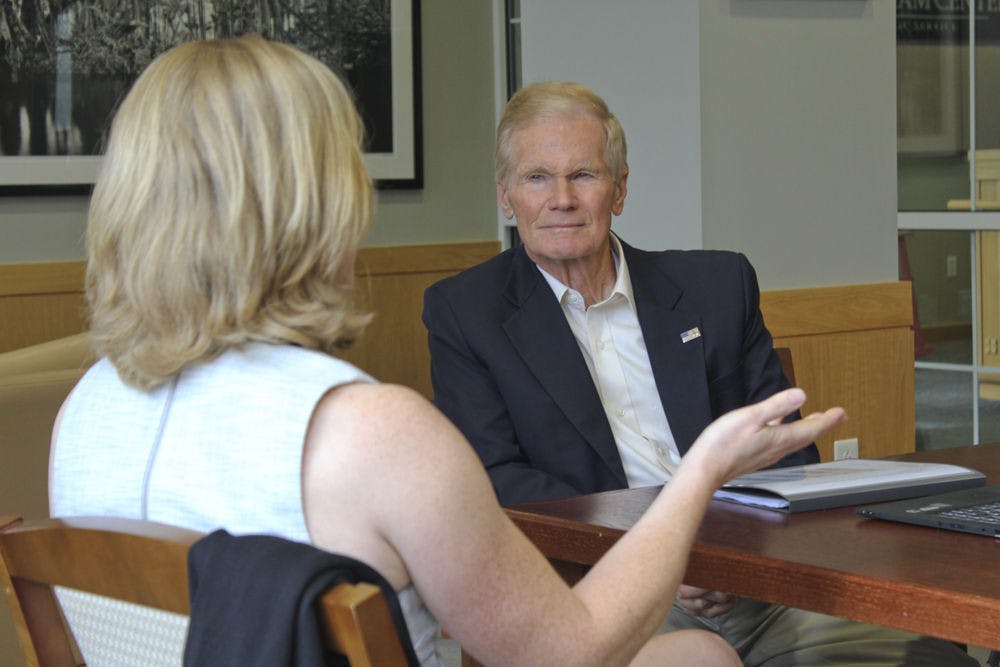Florida Sen. Bill Nelson visited UF to discuss the threat of rising sea levels.
On Monday, Nelson met with UF assistant geology professor Andrea Dutton in Pugh Hall to discuss her research on the history of rising sea levels and what it can tell scientists about the future.
"The highest place in Florida is 350 feet above sea level," said Nelson, who advocates for action against sea-level rise. "I’ve been preaching to a choir that doesn’t listen."
About one-third of sea-level rise can be attributed in part to thermal expansion, which is when water in the ocean expands as it heats up, Dutton said to an intimate audience of about seven.
Melting ice sheets are also to blame, she said.
"In the next century, we expect massive loss from polar ice sheets," Dutton said.
Although people might be able to alleviate the problem temporarily, she said even if we stopped emitting carbon dioxide today, sea levels won’t stop rising.
"Sea level’s not going to stop in 2100," she said. "It’s going to keep going."
Nelson shared this concern and said sea-level rise would directly affect Florida. Seventy-five percent of Florida’s population lives along the coast, he said.
"The evidence is there," Nelson said. "We have sea-level rise in South Florida that is five to eight inches."
It will take a major catastrophe for people to care that rising sea levels are a threat, he said.
Although Tropical Storm Erika has weakened, the rain will affect sea levels in Florida, Nelson said.
He said all of the rain from Erika will flow down the Kissimmee River to Lake Okeechobee in two months. This will force the water level of the lake to decrease, and all of the nutrient-laden water will cause algae blooms.
Nelson said insurance companies are raising rates for people who live in flood-prone areas around Florida. These areas comprise 40 percent of all areas with federal flood insurance, he said.
Dutton said sea-level rise would affect the entire state.
"Looking at the impact on a broader perspective, that will have a huge effect on Gainesville," she said.
The projections for Jacksonville and the west coast of Florida are also bad, Dutton said. These areas get less attention because there are fewer people living there than in South Florida.
"Not only is it going to happen, it already has," she said. "It’s not a question of ‘if’ but ‘when.’"
Helen Warren, a Gainesville city commissioner, said she felt it was important for her to come out and hear Nelson speak about sea-level rise.
"It’s real," Warren said. "It’s happening."
Contact Caitlin Ostroff at costroff@alligator.org and follow her on Twitter @ceostroff
U.S. Senator Bill Nelson speaks with UF geology researcher Andrea Dutton about rising ocean levels Aug. 31, 2015.






